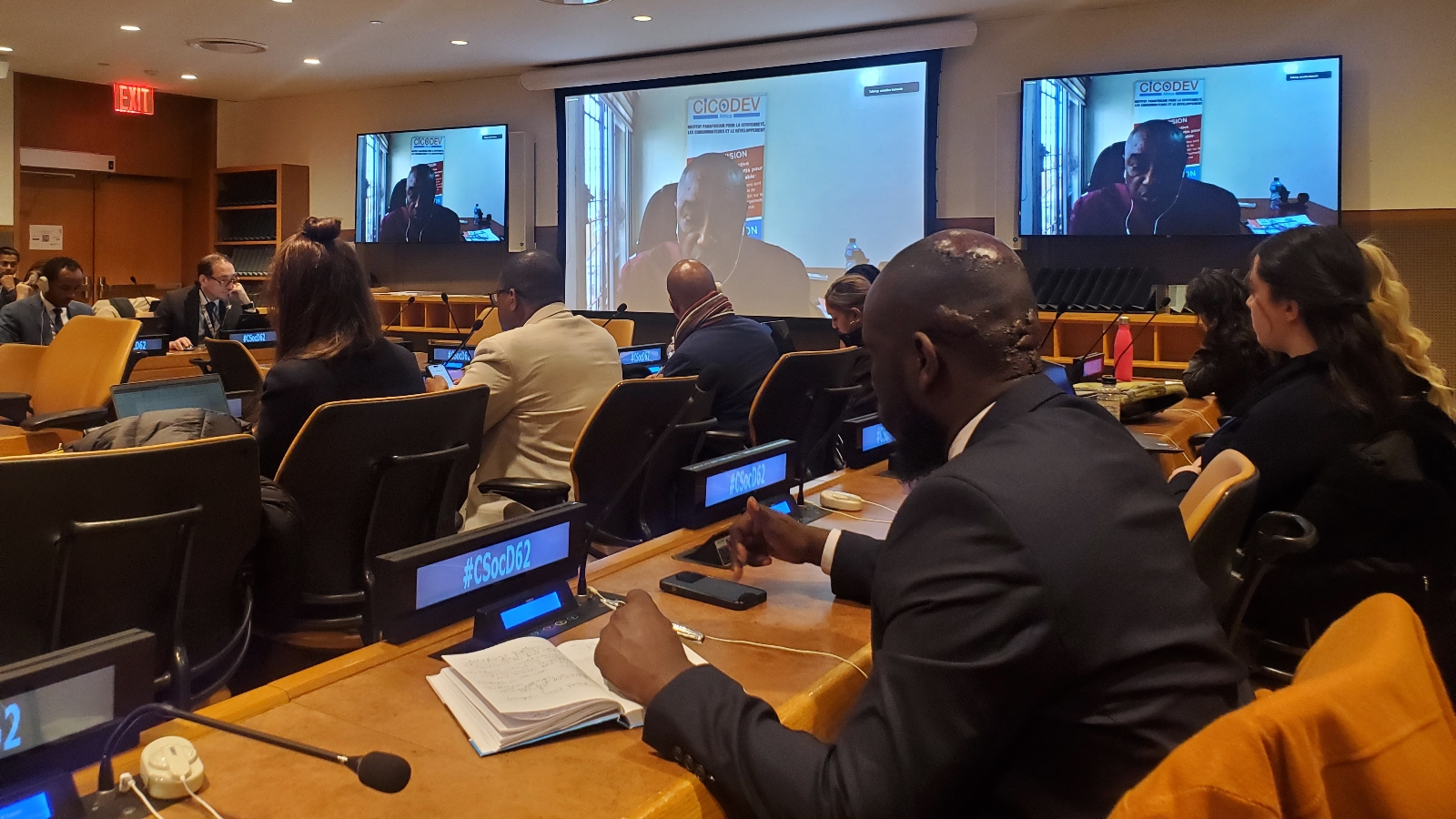
7th February 2024, United Nations Headquarters New York, CSocD62 Event organized by the United Nations Office of the Special Adviser on Africa (OSAA) . The event was about to examining the role of traditional forms of social protection mechanisms in Africa within wider, comprehensive national social protection programmes. It was intended to shed light on traditional social protection’s role in enhancing resilience to shocks, protecting livelihoods, and promoting social justice.
With interventions from African Government officials and expert discussants from the continent, and moderation from the Special Representative of the International Labour Organization to the United Nations, the event heard innovative national examples of community-based indigenous social protection models, such as Kenya’s chamas, which are women’s micro-saving societies that are used to pool savings. In Ethiopia, Ǝqqub is a popular traditional credit association, most likely pre-dating the advent of modern banking systems, that over time has evolved from a trust-based union of acquaintances into large associations that can mobilize substantial financial resources.
Key messages included: (i) there is a sense of urgency to provide social protection to all citizens on the continent. To that end, Governments should look to combine a top-down approach with a bottom-up approach. Supporting traditional schemes only helps to bolster national social protection programmes; and (ii) social protection is not charity – rather, it is a macroeconomic stability tool. Social protection builds resilience, and when external shocks arrive, societies have a safety net to preserve stability.
Although it is estimated that only 17.4 per cent of the African population is covered by the formal social protection system, it was clear from statements made by representatives of Kenya, Djibouti, Ethiopia, Cabo Verde, South Africa and Eritrea that the continent is not an empty space – communities around the continent have always benefitted from traditional social protection schemes.
The question arose of how to move the needle on the expansion and integration of social protection in Africa. Conversations should continue to take place at the policy level at the African Union and the Regional Economic Communities, as well as among think tanks and all key stakeholders on the continent. At the global level, these conversations should continue at the United Nations High-level Political Forum on Sustainable Development (HLPF) and, later this year, at the Summit of the Future.
To conclude, OSAA pledged to continue the conversation – with policymakers, the youth of the continent and other stakeholders – for the expansion of social protection in Africa, with traditional forms as a key building block, to help achieve the 2030 Agenda for Sustainable Development and the African Union Agenda 2063.
For more information about the 62nd Commission for Social Development (CSocD62), please visit: https://social.desa.un.org/csocd/62nd
Source: OSAA
 Welcome to the United Nations
Welcome to the United Nations